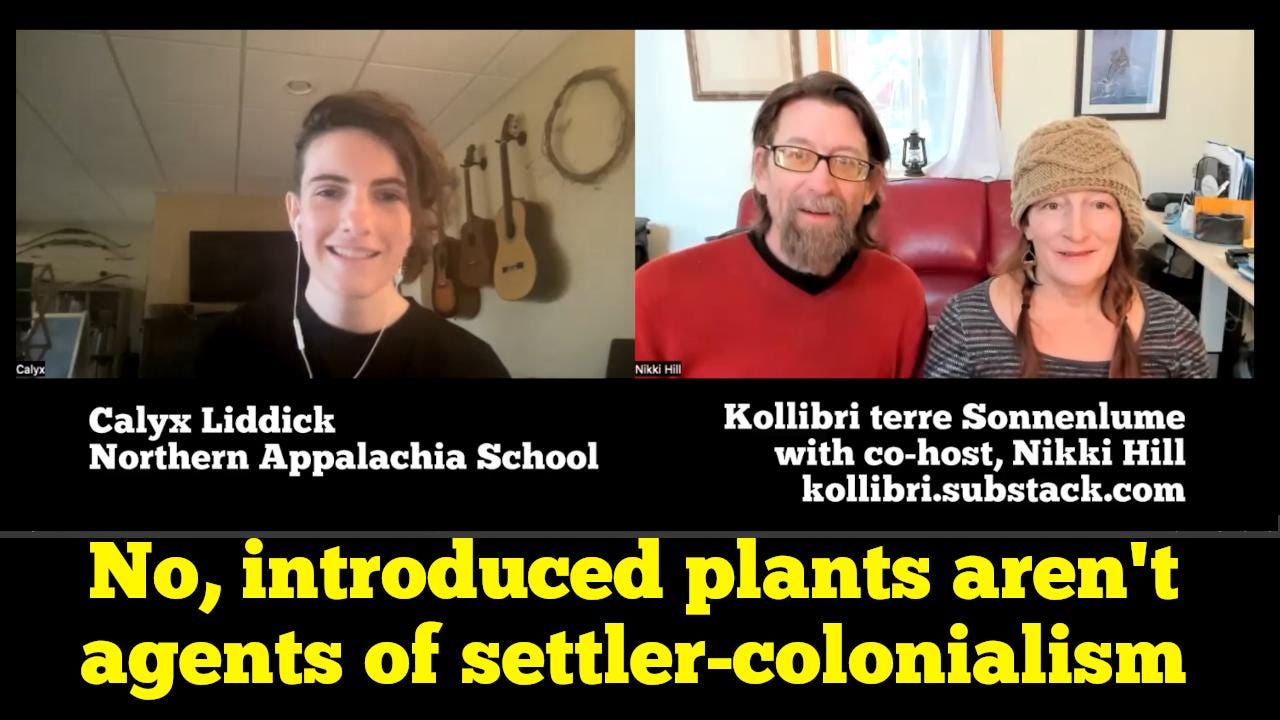No, Introduced Plants Aren't Agents of Settler-Colonialism
...and other excerpts from podcast episode #2
I released episode 2 of my podcast a couple weeks ago, and wanted to draw your attention to it again. Besides the full interview, entitled, “Eugenics & Conservation: Too Close for Comfort,” which clocks in at a hefty 2 hours and 34 minutes, four excerpts of shorter length are available on YouTube. Two are just over 16 minutes long, and the others are about a half hour each. I made these available for people who aren’t inclined to make such a long time commitment, but also to focus on particular themes I wanted to highlight.
This one, “No, Introduced Plants Aren't Agents of Settler-Colonialism,” hones in on a sub-debate within the “invasive plant” discussion, on claims that are most often put forward by people I consider allies on other issues, including colonialism, indigenous justice, anarchism, etc. The basic gist of their argument is that introduced plants are part-and-parcel of settler-colonialism and that eradicating them is an essential component of the vital work of decolonization. I disagree, as does guest Calyx Liddick and co-host Nikki Hill, and we get into why in this excerpt.
You should watch this excerpt to really get the gist of what we’re saying, as the flow from one idea to another paints a picture. That being said, we talk about: how the separation of indigenous people from their land base resulted in the cessation of traditional tending practices and how ecologies changed in response; how can we make reparation in our own actions; how plants did not arrive her in an act of intentional conquest; the way forward vs. the way back; how indigenous people hold many different points of view, some of which are at odds with each other; the importance of recognizing co-evolution between introduced and native plants; how integration is a key ecological process and also need to be a social one; the arrogance of questioning Mother Nature's judgement and choices; the need for settler-colonialists to own settler-colonialism as their legacy and not foist it onto the more-than-human world; the rich history of indigenous people moving plants around; and the necessity of coexistence.
I’m aware that the title of this episode, “Eugenics & Conservation: Too Close for Comfort,” for being so far outside the current mainstream of environmental discourse, could unintentionally come off as anti-environmental, but that is far, far from the case. The three of us in conversation here care very, very deeply about environmental issues and protecting places. We also feel strongly about defending ecological processes from harmful human action and reaction, and about engaging in tending practices that are healthy for everyone involved. We hope to bring these perspectives into the mainstream discourse, and to highlight other voices who belong there but who are currently marginalized. Our reflections are both personal and political.
Here are the other excerpts. As always, please like, comment and subscribe, as that helps surface these videos for other viewers. Also, this is the second of three episodes that are in the can, and after the third I will be deciding whether to go forward with the podcast project or not, largely dependent on how many views/listens they get, as this stuff is a lot of work. Thanks!





